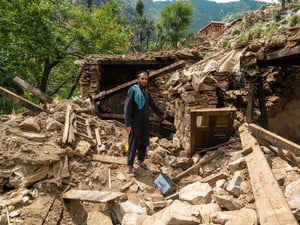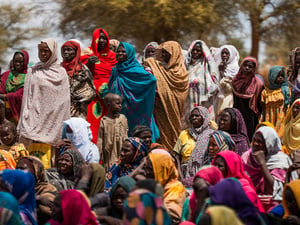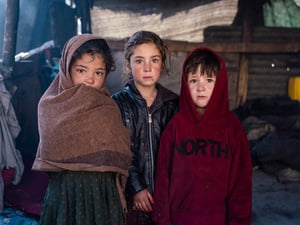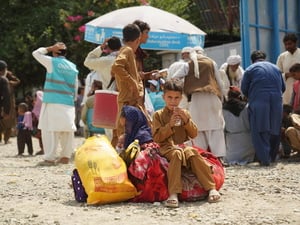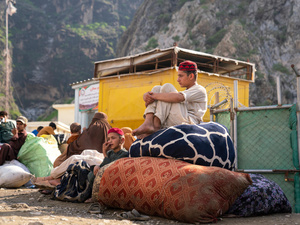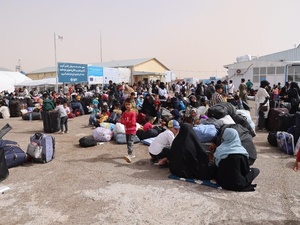UNHCR seeks US$18 million to plug funding gap for Afghan refugees in Iran
UNHCR seeks US$18 million to plug funding gap for Afghan refugees in Iran
UNHCR is calling for US$18 million to meet an anticipated shortfall this year in its requested funding for Afghan refugees in the Islamic Republic of Iran.
UNHCR, whose programmes for Afghan refugees are in partnership with the Iranian government, has assessed comprehensive budget needs at US$36.8 million. However, to date only around a fifth of that sum has been received.
Voluntary repatriation of Afghans from Iran has slowed considerably in recent years in the face of poor security and economic conditions in Afghanistan. Only 6,000 people returned in 2009 and 3,600 in 2008. More than a million registered Afghans meanwhile remain in Iran, with 97 percent living in urban or semi-urban settings and creating strain on health, education and other local infrastructure.
Iran, which is facing its own economic difficulties amid the global downturn, has hosted two generations of Afghan refugees but has received little international support. Refugees have benefited from basic health and education services and usually have been able to earn a living - albeit only informally until work permits were issued to registered refugees last year.
Given the recent slower pace of returns, UNHCR has broadened its programme in Iran to better support services pending repatriation. However, at present we have funds to implement only 22 percent of identified needs across education, health, and livelihood support, as well as boosting water systems, latrines and other infrastructure in refugee settlements and in urban settings with high refugee concentrations. The figure of US$18 million that we're requesting is to meet the anticipated gap in funding.
Many refugees in Iran are feeling the effects of rising inflation and struggle to pay food and medical costs. UNHCR believes the situation will worsen when Iran's new five year national economic policy, expected to begin in 2010, takes effect. The new policy will see the removal of subsidies for electricity, water, other utilities and basic commodities like food. While the government will provide a safety net of cash grants for Iranians, this will not be extended to refugees. Vulnerable refugees in particular will therefore need extra support.
In addition to the one million registered Afghan refugees in Iran, there are some 48,000 refugees from Iraq. Since 2002, UNHCR has helped more than 860,000 refugees repatriate to Afghanistan. In addition, a million Afghans have returned home spontaneously since that time.

